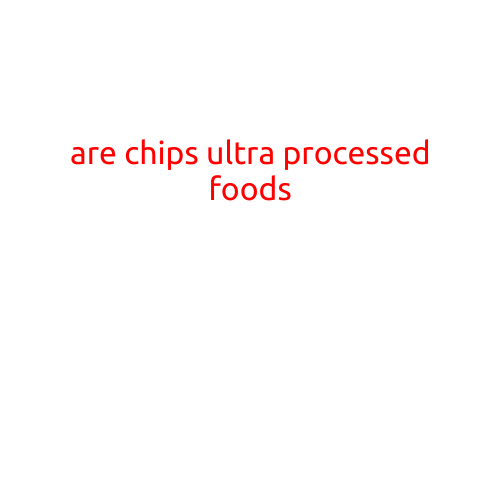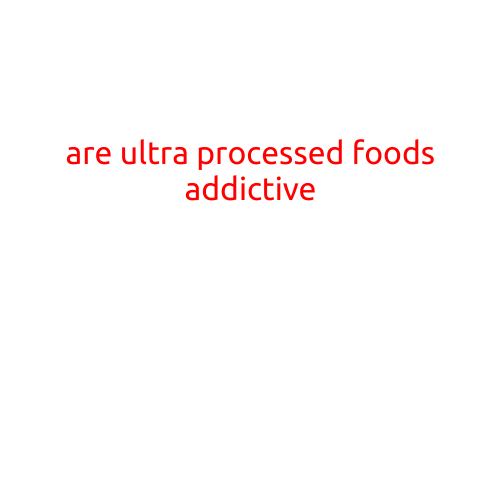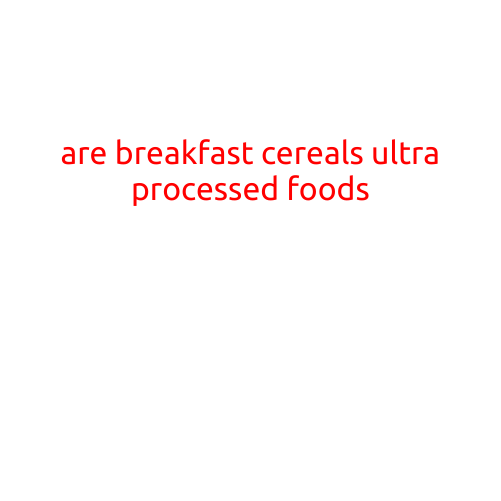
Ultra-Processed Foods: The Unexpected Health Threat in Your Diet
[BBC News]
A new study published in The Lancet has sparked concerns about the health effects of ultra-processed foods, which are already a staple of many people’s diets. Researchers have found that consuming high amounts of ultra-processed foods increases the risk of premature death, heart disease, and diabetes.
What are ultra-processed foods?
Ultra-processed foods are defined as products that have been heavily transformed from their natural state through various industrial processes. They are often created using a combination of sugar, salt, and unhealthy fats, and may contain artificial additives, flavorings, and colorings.
Examples of ultra-processed foods include:
- Packaged snacks like chips, crackers, and cookies
- Frozen meals and TV dinners
- Instant noodles and soups
- Refined baked goods like muffins, cakes, and pastries
- Sugary drinks like soda and sports drinks
- Processed meats like hot dogs and sausages
The risks associated with ultra-processed foods
The latest research suggests that consuming high amounts of ultra-processed foods can increase the risk of premature death by 14%, heart disease by 22%, and diabetes by 33%. These findings are based on data from over 100,000 adults in Brazil, who were tracked over a period of seven years.
The study’s lead author, Dr. Carlos Monteiro, says that the findings are alarming and highlight the need for action. “Our study shows that ultra-processed foods are not just unhealthy, but also dangerous for our health,” he said.
How do ultra-processed foods affect our health?
Ultra-processed foods have been linked to a range of negative health effects, including:
- Increased inflammation: Ultra-processed foods contain high amounts of industrial trans fats, which can cause inflammation in the body.
- Disrupted gut health: The high sugar and salt content of ultra-processed foods can disrupt the balance of gut bacteria, leading to digestive problems and other health issues.
- Nutrient deficiencies: Ultra-processed foods are often low in essential nutrients like fiber, vitamins, and minerals, which can contribute to nutrient deficiencies over time.
- Overeating: Ultra-processed foods are designed to be highly palatable and can trigger overeating and weight gain.
What can we do to reduce our consumption of ultra-processed foods?
The good news is that there are simple steps you can take to reduce your consumption of ultra-processed foods and prioritize a healthier diet:
- Focus on whole, unprocessed foods like fruits, vegetables, whole grains, lean proteins, and healthy fats.
- Choose minimally processed foods like canned beans, frozen vegetables, and homemade soups.
- Be mindful of food labels and avoid products that contain long lists of ingredients or artificial additives.
- Cook at home using fresh ingredients and avoid relying on processed and packaged foods.
- Consider meal planning and prep to make healthier eating easier and more convenient.
Conclusion
The latest research on ultra-processed foods should serve as a wake-up call for all of us to re-examine our diets and make some simple changes to prioritize our health. By avoiding ultra-processed foods and focusing on whole, nutrient-dense foods, we can reduce our risk of chronic diseases and enjoy a healthier, happier life.





